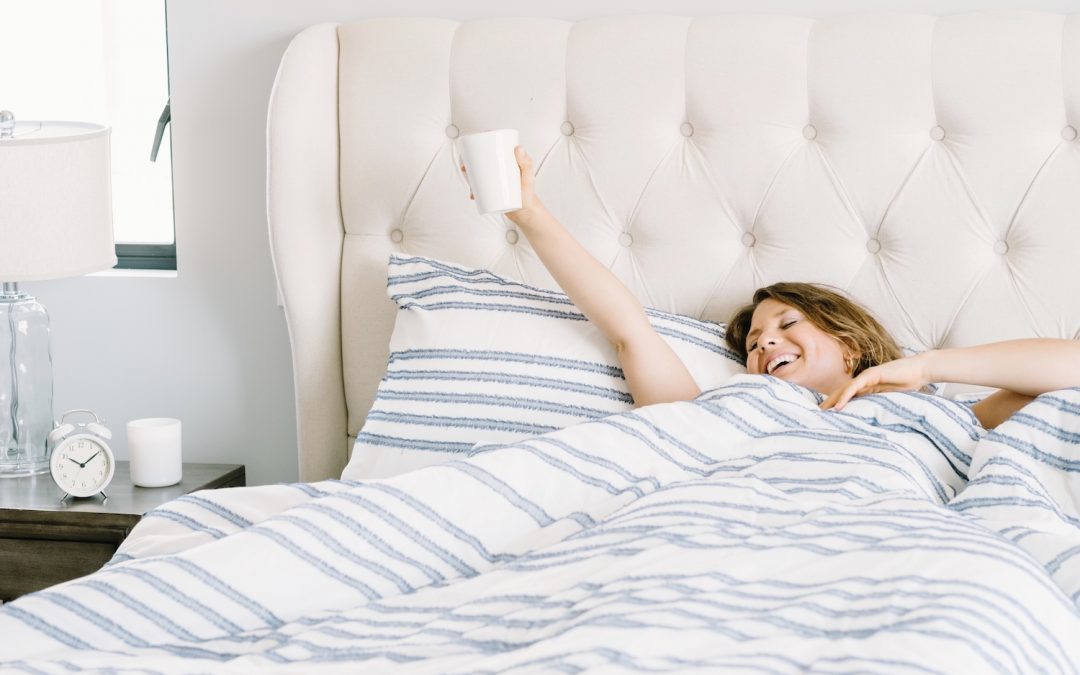Sleep – The Undervalued Commodity of Our Busy Lives!
Chronic sleep deprivation is one of the most common causes of health issues in our western world.
When we are tired, exhausted, everything in life is more difficult.
“We cannot be healthy without healthy sleep!”
Good sleep is the cornerstone of wellness and vital to providing our body time to restore and repair. “Sleep is vital for sustaining peak mental performance, stabilizing mood, bolstering immunity, coping with stress, repairing cells, rebalancing our biochemistry, and maintaining a healthy metabolism” (Dr Frank Lipman).
Everything works better with restorative sleep, including an improved mood, emotional resilience and even digestion.
We Are The Health of Our Cells
We are essentially the health of our cells and it is during sleep our body does much of its cellular maintenance and repair work. In other words, sleep is when the healing happens in our body.
Did you know that if you lose one night of sleep, your mental performance is like you are legally drunk? Similar results are also seen when people reduce their sleep from 8 hours to 6? (https://www.bewell.com/blog/why-the-sleep-deficit-is-real-and-serious/)
Studies have shown that just one night of sleep deprivation can make you as insulin resistant as a person with Type 2 diabetes – this leads to aging faster, decreased libido, and storing more body fat than you want to.
Ever craved sugary or starchy foods late at night?
Starving the body of sleep for 24 hours reduces glucose reaching the brain by 6%. This isn’t shared equally in the brain with 12 to 14% being lost from your parietal lobe and the prefrontal cortex, the areas of our brain we need most for thinking, distinguishing between ideas, social control, and choosing right from wrong. For this reason, sleep deprivation overrides willpower when reaching for the doughnuts at midnight, it has even been said it puts it in a headlock. (S Stevenson – Sleep Smarter)
Have you ever made a poor decision or over-reacted when you were sleep deprived?
Research is 100% conclusive that poor sleep is detrimental to learning in all stages of life and the effectiveness and quality of work is sacrificed. Results show sleep deprivation leads to slower function, less creativity, increased stress and underperformance on the job. In fact, when sleep deprived, it takes 14% longer to do a task with 20% more errors. (pg 4, S Stevenson)
Common isn’t Normal…
We often consider waking up tired and being exhausted as normal however just because it may be common doesn’t mean it is normal.
It has been said our sleep quality is heavily influenced by our diet, exercise, stress levels, and many other lifestyle factors. (S Stevenson – Sleep Smarter)
So what can we do to improve our sleep?
Here are 6 Sleep Tips to start implementing today:
1. Reframe Your Idea of Sleep – change your thinking from sleep being an obstacle, or a commodity you can freely trade, to a necessity. Even consider sleep as a highly beneficial indulgence that you get to experience every day. Quality sleep allows your body time for proper maintenance and repair.
It doesn’t matter what you eat if you don’t get your sleep!
2. Get More Sunlight – Did you know that your sleep cycle is heavily impacted by the amount of sunlight you receive during the day? Too little light exposure during the day and too much artificial light at night will negatively impact your ability to sleep well at night by adversely affecting your body’s hormone production, specifically your serotonin, cortisol and melatonin levels.
Melatonin is your “quality” sleep hormone. It is directly affected by how much sunlight you absorb during the day and light exposure you receive at night. Did you know that wearing sunglasses can inhibit the natural exposure of light you need to assure healthy hormone secretions and healthy sleep? Our melatonin regulation is directly affected by how much sunlight we are exposed to through our eyes.
Our body clock is most responsive to sunlight in the early morning, between 6 am and 8.30 am for at least ½ hour.
3. Screen Protection – It is recommended to restrict screen time for 90min before bed to allow enough time for your melatonin and cortisol levels to normalize.
Adjust your notifications on your electronic devices to lower arousal levels and “set the tone” for bedtime by creating a transition time where lights are dimmed and wi-fi is turned off.
Use blue light blockers such as f.lux App to eliminate the problems of blue light.
4. Caffeine Curfew – This is where bio-individuality will come in and knowing your bodies sensitivity to caffeine. However, generally, it is recommended to curb caffeine intake after 2 pm to reduce your bodies level of alertness in preparation for the evening.
5. Set the Mood – Create an environment that supports a good night’s sleep. Remove clutter from your bedroom, eliminate any unnecessary light with dark curtains, and ensure it’s not too warm. Around 20 degrees is suggested the most comfortable for optimal sleep if you have cold feet consider wearing socks rather than layering up too much and possibly becoming too warm.
6. Timing – To look and feel our best 8 hours of sleep is recommended for optimal health. It has been shown that sleeping between 10 pm and 2 am enables our body to get the most beneficial hormonal secretions and restorative effects of sleep. We are a part of nature and living by the cues of nature, sunrise to sunset can have major benefits for our health and body functions.
Consider a sleep routine, heading to bed and waking up at the same time every day, ideally 10 pm to 6 am optimizes nature in sync with your body clock, obviously bearing in mind the seasons.
Sleep Cycles – Our body sleeps in cycles, alternating between Deep Sleep, REM and NON-REM Sleep every 90 minutes. By setting your alarm to reflect these 90min cycles can make all the difference to waking alert and ready to jump into your day or feeling groggy and ready to hide back under the covers due to interrupting a sleep cycle.
What About Sleep Debt?
In “Sleep Smarter” Shawn Stevenson shares that if it is within a 24 or 48 hour period then you can “make up” missed sleep however any longer than that you can have long-term consequences in terms of hormone imbalance, let alone the consequences of poor judgement, slow performance and emotional imbalances which you can’t go back and redo.
Other research has shown that your body doesn’t forget even half a night of lost sleep, it carries the debt forward into the next day, and the next. One 1990’s study put people in a darkened room for 14 hours, they slept for 12 hours for 4 weeks before they naturally decreased to 8 hours. They had to pay off their debt before settling into a normal sleep schedule. (https://www.bewell.com/blog/why-the-sleep-deficit-is-real-and-serious/)
Drawing the Curtains on Sleep…
How are your sleep patterns, do you sleep through the night and wake refreshed?
Improving your quality of sleep can have a huge impact on your overall health and wellbeing.
There are many things that can influence our ability to sleep and sleep well if you would like to discuss your sleep concerns please add a comment below or message me and let’s get your sleep habits back on track.
Blessings
Elke
Abundant Wholeness
References:
https://www.bewell.com/blog/how-to-sleep-well-5-common-sleep-mistakes-and-how-to-fix-them/
https://www.bewell.com/blog/why-the-sleep-deficit-is-real-and-serious/
Sleep Smarter by S Stevenson
Women’s Wellness by Dr Libby Weaver
Interesting read: https://www.bewell.com/blog/why-the-sleep-deficit-is-real-and-serious/




